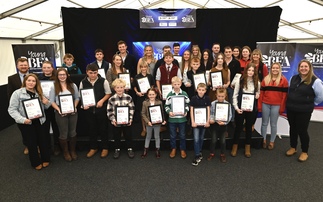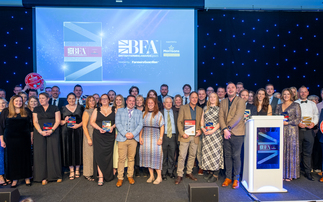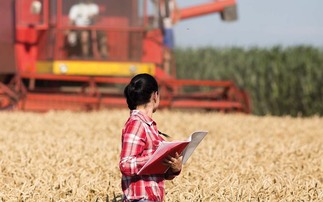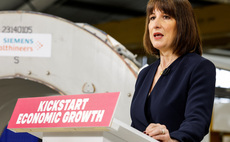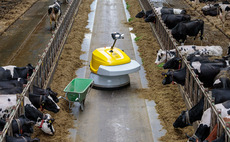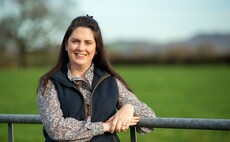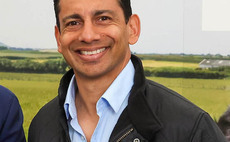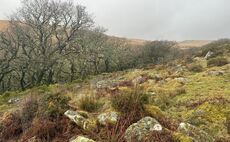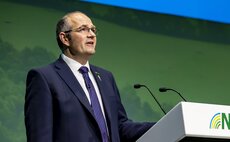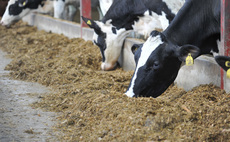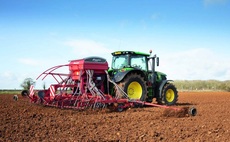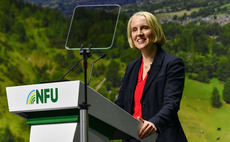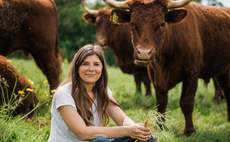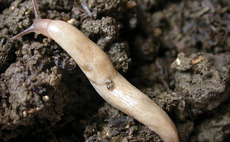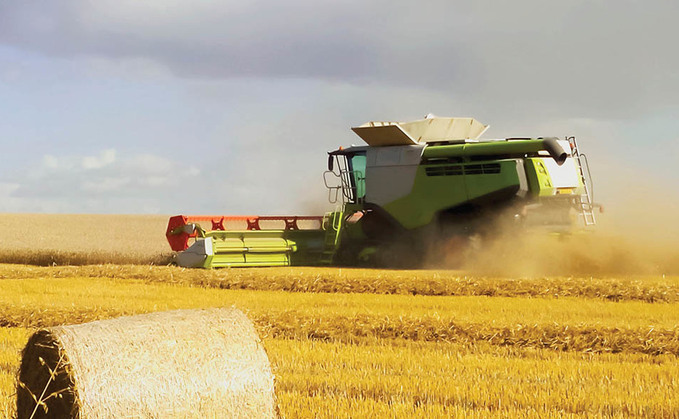
For thirteen years, the British Farming Awards have shone a light on the best in British Farming. During this annual event, Britain's farming industry comes together to celebrate the achievements of its contemporaries.
Each finalist has made key changes to improve their farm, exploring new possibilities to help safeguard their businesses, whether that be through progressive, environmental or more collaborative approaches, regardless of the farm size.
READ NOW: Introducing the finalists for the British Farming Awards Agri-Tech Innovator of the Year 2025
Finalists
Jamie Stokes - Cambridgeshire
Jamie Stokes, from Cambridgeshire, is a finalist for the British Farming Awards' Arable Farmer of the Year 2025, recognised for his innovative and highly efficient management of a 900ha family-run farm. Operating alongside two full-time colleagues, Jamie oversees a diverse arable rotation that includes winter and spring wheat, barley, oats, beans, and rotational grass for hay, as well as onions in partnership with a neighbouring grower. The farm is also diversified into domestic and commercial lettings, equine livery, vehicle storage, Christmas tree retail, and commercial game shoots.
Central to Jamie's approach is his long-term strategy for controlling blackgrass, a weed that once caused yield losses of up to 60%. Combining non-inversion tillage, strategic ploughing, and pre-emergence spraying with high-capacity, GPS-guided equipment, Jamie has gradually reduced the weed's impact, adapting rotations and cultivations to give the farm a competitive edge. "Farming for Blackgrass Control" underpins every decision, ensuring that profitability and sustainability go hand-in-hand.
Jamie's leadership style reflects both innovation and pragmatism. He manages all strategic, planning, and commercial decisions, allowing his cousins Jason and Daniel to focus on practical operations like spraying, drilling, and machinery work. His mantra, "That's good enough is not good enough," drives high standards across all areas of the farm, from machinery maintenance to seasonal operations. He also champions work-life balance in an industry notorious for long hours, creating a culture of efficiency without overwork.
Innovation is not limited to the field. Jamie has recently overseen the completion of a new grain store, introduced flexible cropping schedules, and implemented robust planning systems to manage multiple enterprises. Completing a Nuffield Scholarship in 2025 has broadened his perspective, bringing global insights into farm management and business resilience.
Looking ahead, Jamie is preparing the farm to navigate upcoming inheritance tax reforms, tackle emerging weed challenges such as resistant ryegrass, and respond to market volatility. His proactive mindset, combined with a willingness to adapt and experiment, ensures the farm remains profitable and future-ready. In a sector facing constant change, Jamie Stokes exemplifies how vision, strategy, and meticulous management can transform both land and legacy.
READ NOW: Introducing the finalists for the British Farming Awards Agricultural Student of the Year 2025
Will Oliver - Warwickshire
In the heart of Warwickshire, arable farmer Will Oliver is showing how innovation, efficiency and environmental care can work together. Growing winter wheat, winter beans and grain maize, his system focuses on soil health, reduced inputs and maximising Sustainable Farming Incentive options, all while producing quality food.
The family business is run with his father Alfred and younger brother, alongside two long-serving arable staff. Paul, with the team for nearly 37 years, is the sprayer operator and combine driver; George, after eight years, is the mechanic, fertiliser spreader operator and lead drill man. Will's wife Polly manages a glamping and dog-walking venture, hosting weekly farm walks to connect visitors with modern farming.
BASIS and FACTS qualified, Will undertakes all agronomy in-house. His approach is largely no-till, with light cultivations before maize to incorporate poultry manure from the family's 2,000-tonne litter resource. Grain maize has replaced oilseed rape, creating a niche market while enabling better manure use and integration of rye/vetch cover crops grazed by local Suffolk sheep.
Innovation is central to the business: hoeing, companion cropping, zero insecticide use, and trials with partners such as BOFIN, Syngenta, LG Seeds and Agrovista. Will's work on the NFU National Crops Board and RB209 Panel keeps him close to emerging policies, especially those affecting nitrogen use efficiency, a personal focus for improving profitability and sustainability.
The shift to grain maize has opened supply opportunities to local farms, shoots and potentially the bird feed and pet sectors. Each enterprise within the business is run as a separate entity to monitor true performance, ensuring the arable operation stands on its own.
With legislation, climate pressures and market volatility ahead, Will believes resilience and adaptability are vital. Opportunities lie in carbon markets, robotics, gene editing and precision data use to boost efficiency without sacrificing yield.
Cover cropping, reduced tillage, targeted logistics and intensive soil monitoring underpin his contribution towards Net Zero by 2040, backed by a commitment to continuous learning and results-driven change.
READ NOW: British Farming Awards: Soil-first approach helps Cheshire dairy farm build sustainable future
Colin Chappell - North Lincolnshire
On the banks of the River Ancholme in North Lincolnshire, Colin Chappell has built a farming business defined by resilience, innovation, and a deep respect for the land. Managing 645 hectares of owned, tenanted and contract-farmed land, his approach blends regenerative techniques with commercial focus, earning him a finalist spot in the 2025 British Farming Awards' Arable Farmer of the Year category.
Farming some of the heaviest clay loams in the country (up to 62% clay) Colin has shaped a system for soil health and long-term sustainability. Around a quarter of the holding is dedicated to wildlife under Countryside Stewardship and Sustainable Farming Incentive schemes, alongside 31 hectares of Miscanthus supplying a local biomass plant. The rotation includes premium milling wheats for Warburtons, low-input oats, vining peas for Birds Eye, beans, forage maize and barley, plus seed crops for local merchants – all under a "local where possible, premium where we can" philosophy.
From a 325-hectare family farm, the business has grown through strategic contract farming, targeted land purchases and innovative systems. Taking on poorly farmed tenanted land six years ago inspired a shift towards minimal soil disturbance, cover cropping, and a diverse rotation designed to combat blackgrass while resting soils.
Colin's innovations focus on reducing inputs while maintaining yields – precision nutrient management, strategic organic manures, and investment in soil biology have improved productivity and reduced costs. The farm is now carbon negative, with Agrecalc data showing significant greenhouse gas reductions over four years.
Flood resilience is a constant challenge, and Colin actively engages with agencies to improve water management in the Ancholme Valley. Education is another passion: through The Country Trust, the farm hosts up to 750 children annually, reconnecting them with where food comes from.
Looking ahead, opportunities include biodiversity net gain projects, enhanced grassland management, and expanding renewable energy. Colin's vision remains clear: keep the best land growing high-quality food, build soils that can withstand extremes, and run a business strong enough to weather political and market turbulence.









